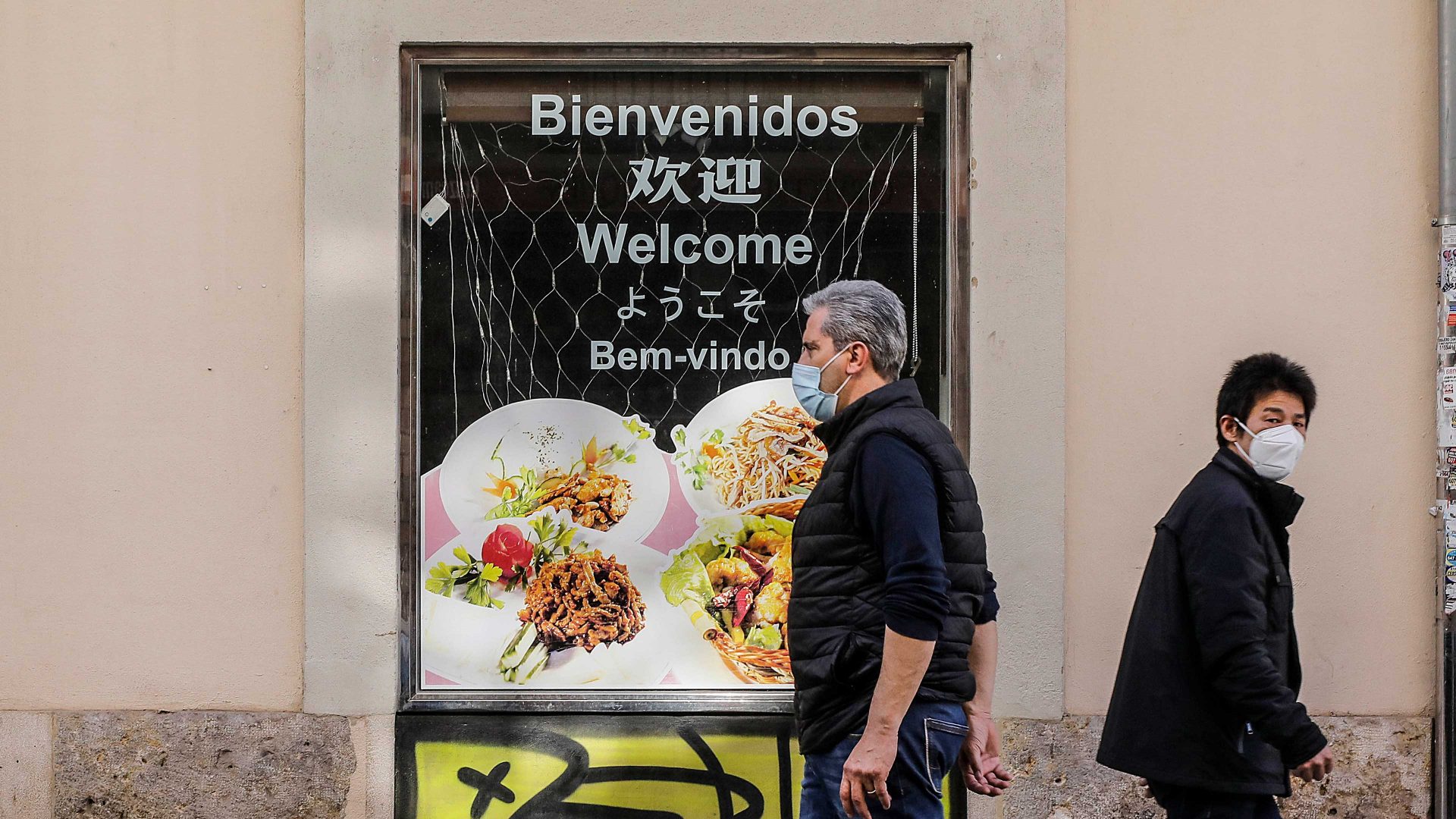Outside a bar in Valencia’s bustling Ruzafa neighbourhood, the sound of the crowd floats up from the terrace into the night air. Ruzafa is hip, but this is no gluten-free pizzeria or uber-cool coffee shop-cum-vintage store. This is your typical, old school, Spanish-style bar: a dingy place with plastic chairs, unexplained stains on the tables, and a glass tapas display showcasing portions of tortilla and morcilla.
It has the same tiled floor, the soundless TV playing in the corner, the fruit and cigarette machines, even the smattering of scrunched-up serviettes on the floor, as found in bars across Spain. But if you look closely, there are some details that mark it out as different. For one, the golden cat statue perched between bottles of anís and cognac, waving its hand slowly backwards and forwards. You may have seen these before. They are usually white or gold, and found in your local Chinese or Japanese restaurant.
Looking around, you notice that the barman and waitress are Chinese, and they flip between heavily accented Spanish and Mandarin as they rush around taking orders. Picking up a menu, you see all the Spanish classics: croquetas, patatas bravas, green beans with garlic and jamón, the so-called Russian salad. In the big tech era, much has been made of the Chinese “copycat” culture of high-quality imitation. But in Valencia it isn’t smartphones or computer chips – it’s tapas.
Chinese-owned bars making tapas for Spaniards are common in Valencia – there are nearly 15,000 Chinese nationals living in the city. Not a huge number, but they brought with them a huge entrepreneurial drive. According to the Universitat Oberta de Catalunya, over half of the Chinese community in Spain are self-employed, the highest proportion of any migrant group.
Some bought bazaars or nail salons, but in Valencia many went for these no-frills, local tapas bars. Back then tapas bars could be bought for as little as €15,000. Often they were sold by the children of bar owners who didn’t want, or couldn’t afford, to keep the family business going.
Valencia is full of these Chinese tapas bars. There’s another just down the road, attracting a distinctly local crowd, not the metropolitan mix of tourists and digital nomads found elsewhere in Ruzafa. The threadbare decor in these sorts of places doesn’t do it for the Instagram generation. Many are so small or hidden that tourists don’t notice them anyway; even if they did, their shabby exteriors mark them out as being for locals only.
Across the road, the terrace is plastered with menu del día deals (another Spanish custom the Chinese have maintained) and photos of dumplings and paella. Inside, the owner paces up and down with her hands behind her back. “It’s just me and my husband,” she says, explaining that she needs no extra staff. Sitting next to the till is another golden cat, arm going slowly up and down. The owner tells me she came from Zhejiang and bought the place nine years ago from another Chinese couple. They had bought it from a Spaniard, who had been forced to sell after the economic crisis. When asked how she learned to make authentic tapas, she laughs and shrugs. “It’s easy… [I] was working in a place like this before.”
But it’s not just the tapas that locals like. “Spanish people really like Chinese food too,” she adds. “Sometimes they order tapas, and then later they want noodles.” Turning over the fraying, laminated menu, she thuds a finger down on the comida china section: pollo al limón, chow mein, arroz frito. In Valencia, it is not uncommon to see Chinese waiters serving Spaniards plates of croquetas and calamari with a side order of spring rolls.
She stops to banter with a passing customer in broken Spanish, and then pokes her head out on to the terrace to check on the regulars.



